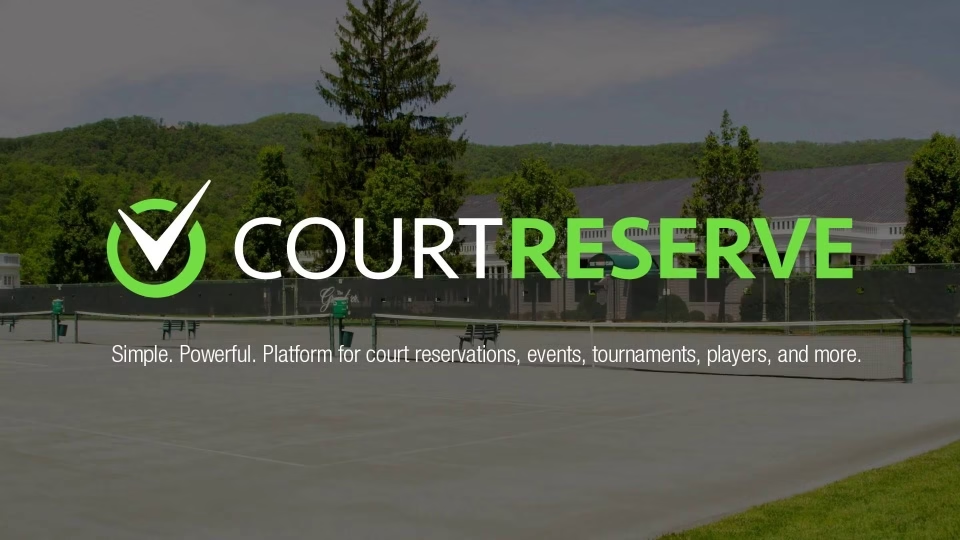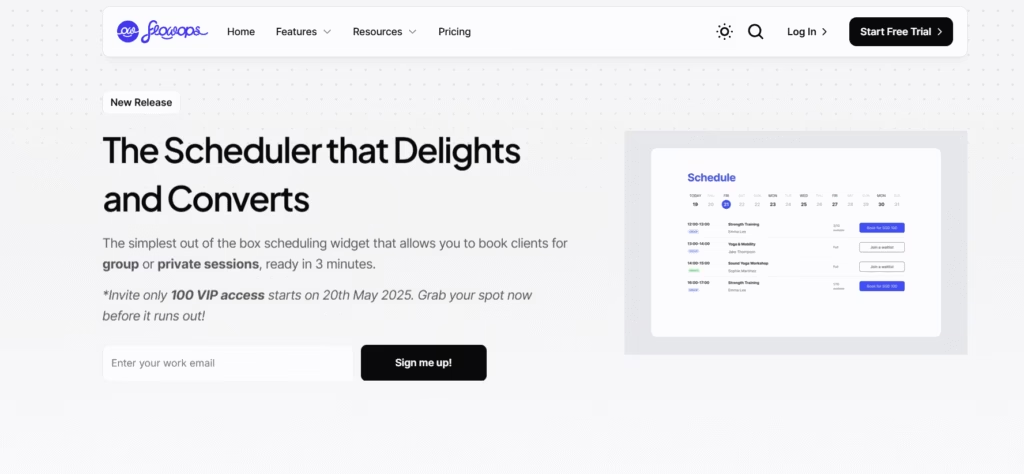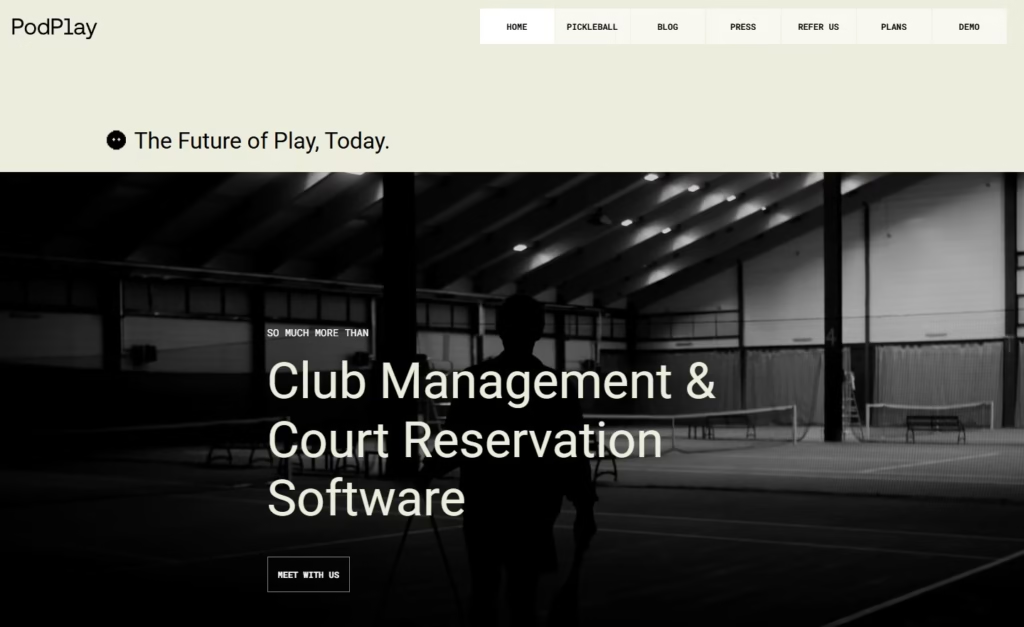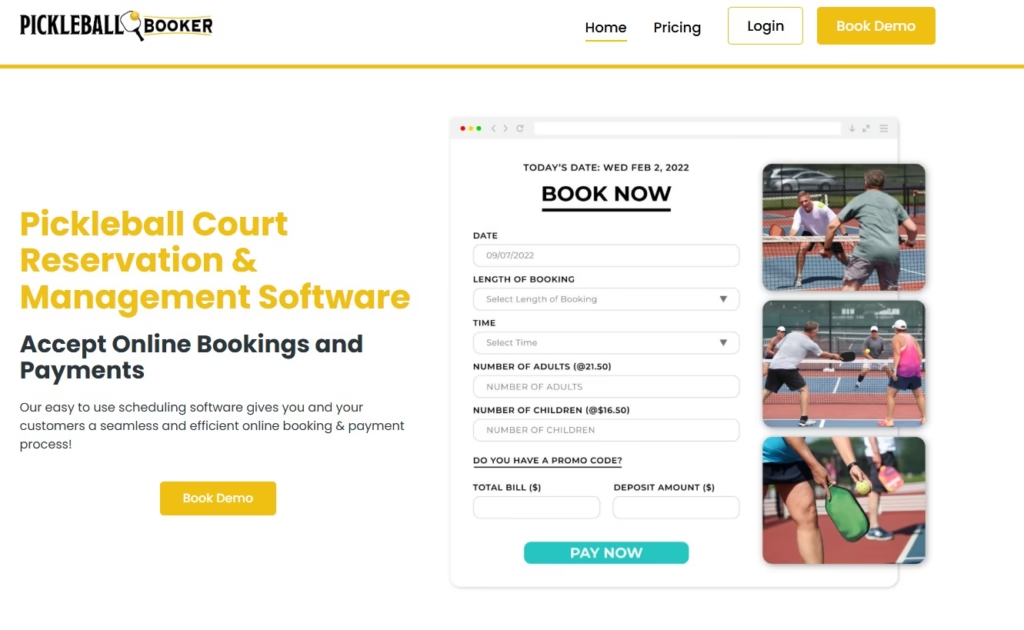Let’s be honest—finding the perfect pickleball scheduling software shouldn’t feel like solving a complex equation, yet here we are, sifting through endless options that all claim to be “the best.”
But which one actually delivers?
If you’ve ever found yourself tangled in a web of missed court reservations or scheduling mix-ups, you know the struggle is real. But fear not—armed with curiosity and a relentless need to test, analyze, and optimize, we’ve dissected the best scheduling tools available.
Prepare for an objective yet entertaining exploration of the smartest ways to keep your pickleball plans on point—no spreadsheets or headaches required.
What is Pickleball Scheduling Software?
Pickleball scheduling software is a digital solution engineered to eliminate the chaos of court bookings, match coordination, and event planning. It centralizes everything from player availability to automated reminders, ensuring that your pickleball sessions run with the precision of a well-calibrated machine—minus the existential crisis of double bookings. A good scheduling software should support a club owner to create:
- An operationally efficient business;
- A pleasant client booking experience that supports recurring visits;
- A clear and consistent communication between the business and clients from booking confirmation, cancellation and check-ins
Meet the Scheduler Behind the Scenes: TheFlowOps
If you’re looking for a refreshingly simple way to manage classes, open play sessions, or even one-on-one coaching, TheFlowOps Scheduler was built with you in mind.
It’s a web-based booking tool designed specifically for small teams, solo instructors, and boutique pickleball or wellness clubs that want clarity—not complexity.
What sets it apart? For starters, there’s no need for players to create accounts or download an app.
Booking is as easy as clicking a link, picking a session, and showing up. Behind the scenes, you get automated waitlists, mobile-friendly booking pages, and zero clunky admin dashboards. Whether you’re running drop-in games or recurring lessons, TheFlowOps helps you stay full without lifting a finger—or sending another reminder text.
Take it for a spin, no credit card needed. You might just wonder how you managed without it.
What makes the best pickleball scheduling software for small businesses?

Finding the right pickleball scheduling software isn’t just about flashy features—it’s about efficiency, automation, and eliminating the chaos of coordination. Here’s what separates the best from the rest:
1. Court Booking Efficiency – A good scheduling app should make court reservations seamless, with real-time availability updates and easy modifications. No one wants to show up only to find their court double-booked.
2. Automated Notifications & Reminders – No-shows and miscommunications are a headache. The best apps send automated confirmations, reminders, and real-time updates so everyone stays in the loop without endless group texts.
3. Integrations with Other Tools – A great scheduling app should work well with existing calendars (Google, Outlook), payment processors, and club management software. The more automation, the less manual work for organizers.
4. Mobile Accessibility – Players and organizers need to schedule on the go. A clunky desktop-only interface is a deal-breaker. A good app should be mobile-friendly, if not have a dedicated app for seamless access.
5. Customer support – A reliable scheduling system isn’t just about features—it’s about having the right help when you need it. When issues arise, quick solutions keep your business running smoothly and clients happy.
6. Affordability – Overpriced software that doesn’t deliver? No thanks. We focus on solutions that offer solid value—whether free for casual play or premium for clubs and leagues, affordability matters.
The best pickleball scheduling software at a glance
| Brand | Best for | Standout feature | Pricing |
| Playbypoint | Court bookings for busy clubs who serve self-serve players | A single calendar view that showcase booked versus available courts | Starts at USD 99/month |
| CourtReserve | Clubs needing robust court and member management | Comprehensive event & program management | Starts at USD 99/month |
| TheFlowOps | Scheduling programs such as private/group lessons and open play | Sleek user interface with out of the box on-brand experience | Free plan available; Starts at USD 49/month |
| PodPlay | Facilities aiming to enhance player engagement | Community tab that supports social interaction among club members | Contact for information |
| Pickleball Booker | Simplifying court reservations for players and facilities | User-friendly booking interface | Contact for information |
1.Playbypoint (Web, iOS, Android)

Playbypoint pros:
- Easy to book experience once they have a registered account
- Supports booking via mobile app, even on the most basic plan
Playbypoint cons:
- Steep pricing as you grow. Once you plan to offer lesson programs alongside with self-serve court booking, it goes up from 99 USD to 199 USD a month
The era of frustrating court bookings is fading into history. Playbypoint has positioned itself as a go-to solution for clubs that prioritize a seamless, user-friendly scheduling experience. When a club signs up with Playbypoint, it gains access to a centralized dashboard for managing booking schedules. All client interactions are hosted under a dedicated Playbypoint subdomain, such as pickleplayclub.playbypoint.com. A lengthy subdomain isn’t exactly the pinnacle of elegance, so choose your club name wisely—you’ll be typing it out more often than you think.
2. CourtReserve (Web, iOS, Android)

CourtReserve pros:
- One of the earliest players on this list, established ~6 years ago
- Support customisable integration options
CourtReserve cons:
- Steep pricing if you want to offer booking via mobile application (USD 499/month)
CourtReserve stands out as a robust platform for clubs seeking to enhance their scheduling and management processes. Its comprehensive features, coupled with a focus on user experience and continuous improvement, make it a valuable tool for both administrators and members. However, potential users should be aware of the mobile app’s limitations and assess how the platform’s communication tools align with their club’s needs.
3. TheFlowOps

TheFlowOps pros:
- Built specifically for small studios and solo instructors
- Clients can book instantly—no account or password needed
- Automatic waitlist fills cancelled slots without manual follow-up
- Mobile-friendly web booking (no app downloads required)
- Simple interface with wellness-friendly design
- Free plan available; low learning curve even for beginners
- Migration support for those switching from other platforms
TheFlowOps cons:
- No downloadable mobile app (but mobile web experience is highly optimized)
- Currently focused on wellness and coaching—less suited for complex facility rentals
- Limited advanced reporting features (coming soon)
We’d be remiss not to include our own scheduling tool in this roundup—especially since it was built with small studios, coaches, and boutique clubs in mind.
TheFlowOps Scheduler is designed to keep things simple for you and seamless for your clients. From group sessions to private coaching programs, it makes booking feel effortless—no logins, no app downloads, just clean, intuitive scheduling that works beautifully on mobile and desktop.
If you’re running a more exclusive or community-driven setup and want a system that reflects the same care and clarity you bring to your classes, TheFlowOps is worth a closer look.
4.PodPlay (Web, iOS, Android)

PodPlay pros:
- Supports both courts and events bookings on basic plan
PodPlay cons:
- Pricing is not transparent
Another popular choice in the market, podplay. PodPlay’s mobile-first interface allows players to book courts with ease, reducing the manual workload on staff and optimizing court utilization. The platform supports digital scoreboards and video replay functionalities, enriching the player experience and providing opportunities for facilities to engage members more effectively.
5.Pickleball Booker

Pickleball Booker pros:
- Custom booking page with unlimited monthly bookings
- Unlimited digital waivers and customer reminders
Pickleball Booker cons:
- Pricing increases with the number of courts; additional courts cost extra.
So, is TheFlowOps right for your pickleball court?
If you’re running group pickleball sessions, what you really need is a system that’s fast, flexible, and simple—for both you and your players.
You want people to book easily (no app downloads or password drama), show up consistently, and fill in those empty spots without endless back-and-forth.
That’s where TheFlowOps shines.
It’s built for small teams and solo organizers who just want things to work. Clients can book straight from your site, waitlists fill automatically when someone cancels, and the mobile-friendly design means more people sign up on the go. No steep learning curve, no tech headaches—just a clean, wellness-friendly system that helps you run your court like a pro.
Conclusion
Choosing the right pickleball scheduling software can make all the difference in running a smooth, stress-free booking system—whether you manage a small community court or a growing pickleball facility.
The best platform for you depends on your budget, features, and long-term business goals. If you’re still weighing your options, it’s worth understanding the key factors to consider when choosing an online booking software to ensure you’re making the best investment.
For those looking for cost-effective solutions, you might be interested in how to build a free booking website for your yoga classes or how to build a free booking website for your retreats, which provide insights into setting up a simple, functional system without breaking the bank.
Looking to automate your yoga class bookings without spending extra? These free scheduling platforms are a great place to start.
And if you’re a yoga or wellness retreat owner exploring scheduling tools, check out the best booking software for small yoga businesses and wellness retreats to find a solution tailored to your needs.
No matter which software you choose, the right scheduling system should work for you—not against you—helping you streamline operations, keep clients happy, and grow your business with ease.



